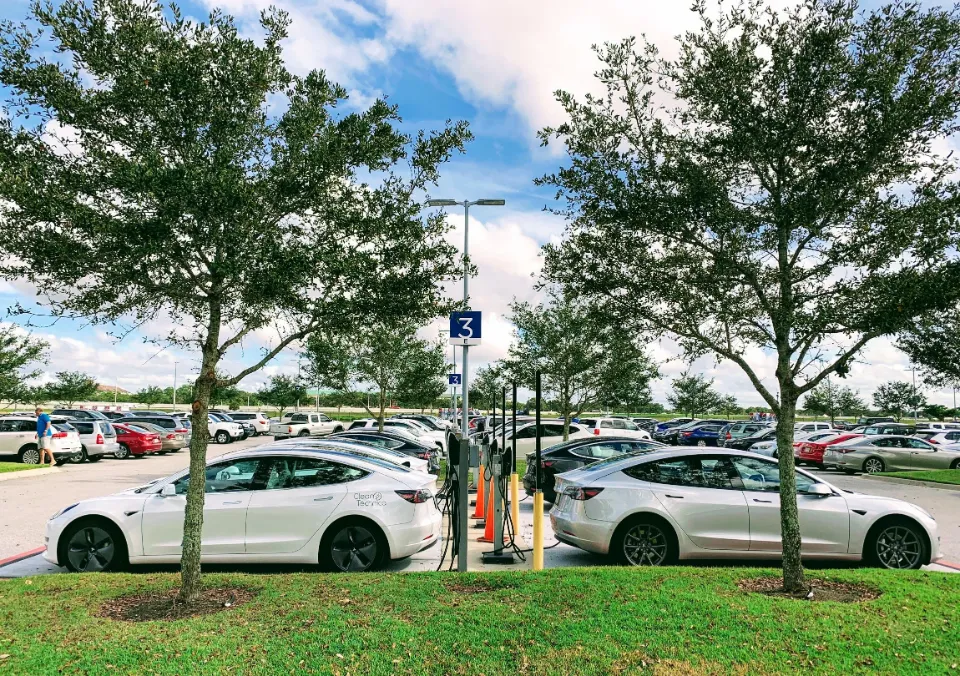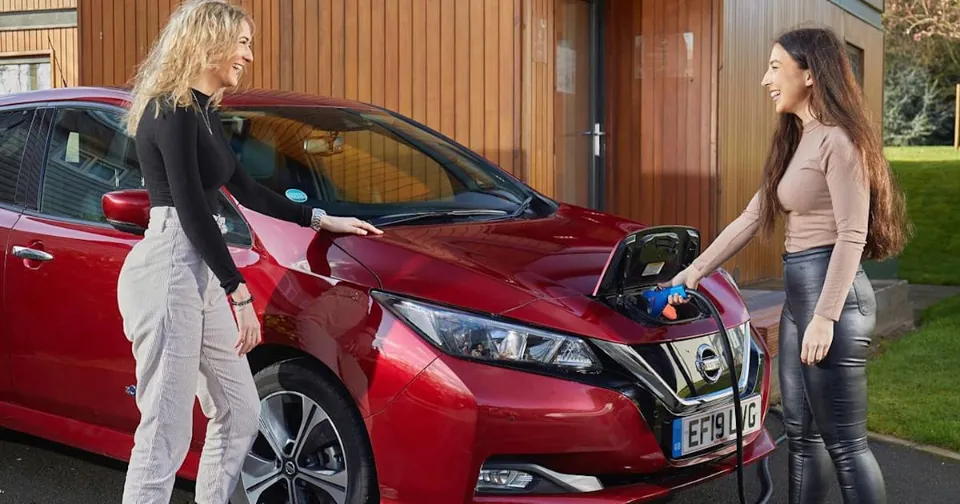So, are hybrids worth it? In some ways, they are worthwhile, but not in others. The majority of buyers are drawn in by the initial fuel savings they offer, but other considerations are frequently ignored. A hybrid is definitely worthwhile if your only goals are to buy a fuel-efficient vehicle, lessen your carbon footprint, and keep the vehicle for as long as possible.
All things considered, a hybrid vehicle will eventually make up for its higher initial cost, though the time frame varies depending on the vehicle. Owners who keep their cars for longer than six years will have a better chance of actually saving money by purchasing a hybrid than owners who keep their cars for less time.
What Makes Hybrids Worth It?
There are many benefits to hybrid vehicles when compared to conventional or even electric vehicles when you look at the hybrid cars and SUV options currently available on the market. Here are a few justifications for why hybrid cars are definitely worth looking into.
Fuel Savings:
The fact that hybrid vehicles use less fuel than conventional vehicles is the most frequent factor driving consumers to choose them. The possibility of fuel savings can now trump almost any other consideration in a rush to get into a vehicle that can save $10 to $20 at the pump at each fill-up due to the skyrocketing cost of fuel. Hybrid cars can save you hundreds of dollars a year at the gas pump, even just when you consider the fuel consumption.
As gas prices rise, as they have over the past year, fuel savings rise. It should be noted that the savings that hybrid cars offer at the pump will decrease as gas prices decline. Depending on current gas prices and the vehicles you are comparing, you could save as little as $400 per year or as much as several thousand.
Nevertheless, regardless of how high or low gas prices go, you will typically leave the pump with savings compared to a car with only a gasoline engine.
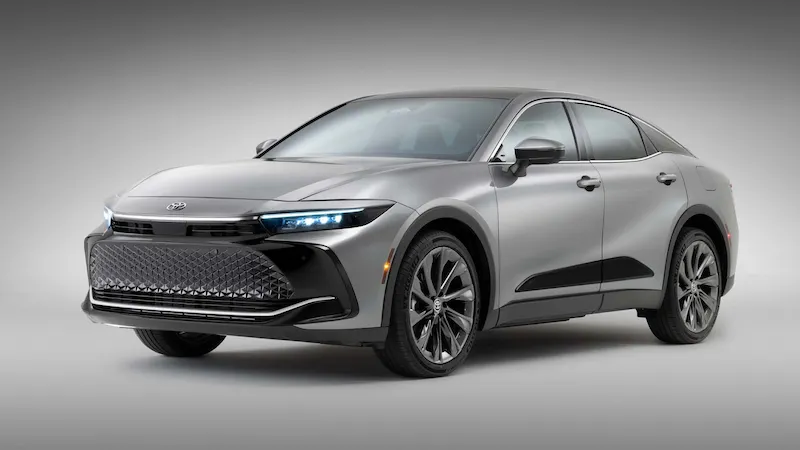
Carbon Footprint:
A lot of people think that it is their moral responsibility to reduce as many tailpipe emissions as possible, in addition to saving money at the pump. In order to save our planet for future generations as well as the current one, it’s crucial to reduce your carbon footprint by quitting using fossil fuels.
For those who want to lessen their carbon footprint but can’t yet justify an electric car due to its typically shorter driving range, hybrid cars offer at least a temporary solution. Depending on your perspective, the need to reduce your carbon footprint may outweigh all other vehicle-related considerations. In that situation, a hybrid, plug-in hybrid electric vehicle, or electric vehicle will always be worthwhile. Question: What are Hybrids Vs. Plug-in Hybrids, and how do the two types of vehicle compare?
Incentives:
When hybrid vehicles were less common on the market, tax credits and other financial incentives were available. Although many of those incentives for hybrids are no longer available, many PHEVs still have them. Check the EPA website to see which vehicles are and are not eligible for incentives because they differ for each vehicle.
The largest tax credits, worth $7,500, are available for sedans like the Honda Clarity and extended-range Volvo S90. The same incentives are available for plug-in hybrid SUVs like the Jeep Grand Cherokee PHEV, BMW X5 xDrive45e, and Toyota RAV4 Prime. An additional $7,500 in tax credits is available for the Chrysler Pacifica PHEV minivan.
Different amounts of tax credits are available for other plug-in hybrid vehicles, including the Volvo XC90, Ford Escape, Lincoln Aviator, Hyundai Tucson, and Hyundai Santa Fe.
Editor’s Tip: Here’s the answer to “How Do Plug-In Hybrid Electric Cars Work?” In plug-in hybrid electric vehicles (PHEVs), an internal combustion engine (ICE) is powered by another fuel, such as gasoline, while an electric motor is powered by batteries. The ICE, a wall outlet, a charging device, or regenerative braking can all be used to charge PHEV batteries. Usually, the car runs on electricity until the battery is almost completely gone, at which point it switches over to using ICE.
Maintenance Costs:
One of the common excuses given by car buyers for not purchasing hybrid vehicles is maintenance costs. Particularly battery packs have the reputation of being costly to replace. It’s only partially true. Due to the fact that they are the only source of power in an all-electric vehicle, battery packs are much larger. Because they are not the only source of the car’s power, hybrids have smaller battery packs. (A hybrid car runs on both gas and electricity. The face of environmentally friendly driving options has been drastically altered by this technology. Read on to find out more about Hybrid Car Batteries.)
In fact, replacing a battery pack is not as common as one might believe, and these days, the cost of doing so is comparable to the cost of replacing a component on a traditional car. In some cars, the cost of replacing the differential, transfer case, and transmission can be comparable to that of a hybrid battery. Even though these repairs are pricey, many people believe that replacing the battery pack in their car will be significantly more expensive than it actually is.
Editor’s Advice: How Much Does a Hybrid Battery Cost? Compared to conventional gasoline-only vehicles, hybrids use different batteries, and their prices range from $1,000 to $8,000. The final cost you’ll incur is determined by the make and model of your car as well as whether you choose a new or refurbished battery.
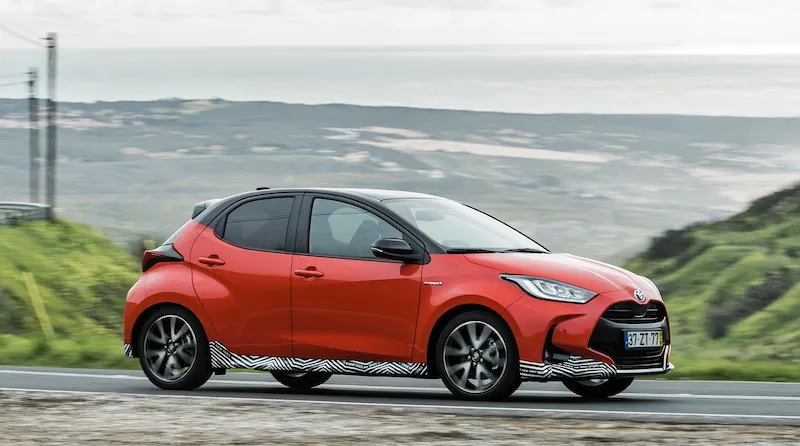
Reliability:
Hybrid cars have consistently shown to be just as dependable as regular cars, with the exception of the note on battery pack replacement. It’s possible to argue that all vehicles have become less reliable as they’ve become more complicated, but it’s also possible to argue that thanks to advances in manufacturing techniques and materials, they’re now more reliable than ever.
A good example of a dependable hybrid car is the Toyota Prius. Due to its excellent reliability record and minimal need for anything other than routine maintenance, it is among the least expensive vehicles to maintain. When repairs are required, they are frequently affordable when compared to a typical vehicle.
Insurance Costs:
If you drive a hybrid or plug-in hybrid vehicle, your auto insurance premiums might be lower, depending on your insurance provider. This is mainly because most teen drivers can’t afford or don’t want new hybrid cars. When someone does decide to purchase a new or used hybrid, it’s usually for financial reasons rather than to race around the block at excessive speeds.
Because hybrid vehicle owners are frequently considered to be low-risk drivers, insurance companies are able to provide additional incentives to those who own hybrid vehicles.
The Hybrid Vehicle Itself:
From one manufacturer to the next, hybrid vehicles and the powertrains that drive them all have significant differences. Some cars are better than others, some have greater ranges, and some simply offer the best balance of fuel efficiency and interior space needed by a family. Your unique needs will determine which hybrid SUVs or cars are best for you.
Due to an increase in manufacturer incentives to produce and sell hybrid vehicles, the used hybrid car market has also grown stronger in recent years if you do not have the money for a new vehicle. It’s now simpler than ever to find a reliable, economical new or used Chrysler Pacifica Hybrid, Honda Accord Hybrid, Lexus UX Hybrid, Toyota Rav4 Hybrid, or Chevrolet Volt. These are merely a few of the numerous hybrids that are offered.
What Makes Hybrids Not Worth It?
Because they are what they are, some people do not like hybrids. However, there are a number of factors that make hybrids much less worthwhile to purchase than even their ardent supporters are willing to acknowledge.
Purchase Price:
The primary disadvantage of hybrid vehicles, despite their potential fuel savings, is the additional cost that almost always comes with their initial purchase price. Although hybrid versions of many popular vehicles are now being offered, they still have an average initial cost that is over $4,000 higher than their gasoline-powered counterparts, even though they may result in additional fuel savings.
For instance, there is a base price difference of more than $2,000 between the Toyota Camry and Toyota Camry Hybrid. The base MSRP for the Honda CR-V is slightly less than $27,000, while the base MSRP for the CR-V Hybrid is $31,610. Some vehicles will have a wider price range, just like most other benefits and drawbacks. In any case, hybrid versions of a given vehicle are almost always more expensive than equivalent non-hybrid versions.
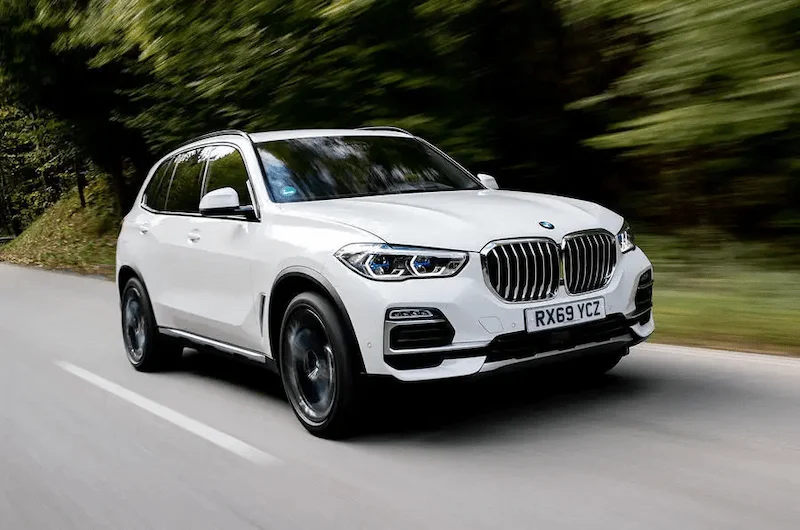
Incentives:
After talking about the upfront cost, it is also true that hybrid cars are no longer eligible for the tax credits they once qualified for. Although the amount can vary, many plug-in hybrids are still eligible for some kind of tax credit. Only a small percentage of those are qualified for the maximum $7,500. Particularly for new hybrids and plug-in hybrid electric vehicles (PHEV), the availability of tax credits may be reduced or eliminated.
Consequently, it is now more challenging to offset the higher initial costs of hybrid vehicles with guaranteed rebates. As tax credits start to expire gradually over the next few years, it will get even more challenging.
Maintenance Costs:
Hybrid maintenance costs are in the “why they are worth it” category because of the perceptions many people have about battery replacements and the extra that it takes to keep them going. Even though that isn’t always the case, maintenance costs also aren’t so low that they make up for everything else. To put it another way, maintenance costs are fairly similar to those of a regular non-hybrid car.
In actuality, the annual maintenance costs of hybrids and gas-powered vehicles are remarkably similar. Regenerative braking, for example, can have a negligible effect on brake pads, but such systems are not common or different enough to make a noticeable difference. In the “worth it” scale, maintenance costs essentially cancel each other out.
Reliability:
Similar principles apply to reliability. The same principle holds true for hybrid and non-hybrid cars alike: every car has its own problems, some cars are more dependable than others. In actuality, one of the most dependable cars on the market has proven to be the Toyota Prius. In comparison to most other vehicles, they require some of the least maintenance.
On the other hand, a car like the BMW 330e, a small plug-in hybrid sedan from BMW, will experience many of the same problems as a typical BMW 3-Series car. It has many of the same components as the non-hybrid BMW 3-Series even after the battery pack and electric motors that make it a hybrid have been added.
And even though battery packs occasionally need to be replaced, just like any other part of a car, this is not as common as many people believe. Some manufacturers even offer a unique warranty that covers the battery pack in the event of a malfunction. Hybrids do not, however, significantly outperform conventional vehicles in the reliability department.
Suggested reading: Thankfully, the market for used hybrids is rich enough for us to pick and choose those with the highest safety and reliability ratings, plus low overall cost of ownership. The best used hybrid cars are those listed here.
Insurance Costs:
Another area where hybrid cars can have advantages and disadvantages is insurance costs. The rates, discounts, and liabilities that insurance companies view can differ greatly, just like the vehicles themselves. There are a variety of hybrids.
While some businesses give discounts to the generally more cautious drivers who prefer to purchase hybrid vehicles, others charge more due to the higher costs of production and, consequently, the higher costs of repairs in the event of an accident. Asking your insurance provider about their policies on PHEVs, electric cars, and hybrids is the best way to find out. Additionally, you can check the insurance rates charged by other businesses for the same vehicle.
The Hybrid Vehicle Itself:
We have already observed initial purchase costs varying from vehicle to vehicle, insurance rates that may vary depending on the provider, and reliability variations. The point is that certain vehicles will be more valuable than others just based on the vehicle itself.
Another excellent example is the Toyota Prius. Due to a number of the aforementioned factors, it is regarded as a reliable car, is reasonably priced, offers excellent fuel economy, and is a relatively inexpensive car to insure. The opposite end of the spectrum is filled by a vehicle like the hybrid Ford Explorer.
The base Ford Explorer Hybrid model costs close to $51,000, which is nearly $17,000 more than the non-hybrid Explorer’s base model and nearly $5,000 more than the non-hybrid Explorer in the same Limited trim level. The standard rear-wheel drive hybrid also achieves estimated fuel economy ratings of 28 MPG on the highway and 27 MPG in the city. These numbers are acceptable, but the non-hybrid vehicle with the same drivetrain achieves about 21 and 28 MPG, respectively.
The Ford Explorer hybrid is not a bad car by any means, but it does highlight the stark differences between hybrid SUVs and hybrid cars in general.
On top of that, some states are starting to impose or are thinking about imposing additional taxes on cars that are particularly efficient. Even though it hasn’t been fully implemented, the notion of forking over some extra cash to offset some of the fuel savings you might get from a hybrid can be discouraging. Nevertheless, it’s something to think about moving forward.
Editor’s tip: Just like with all cars, your Prius’ battery will eventually need to be replaced. But when will that be? How long do Toyota Prius batteries last?
What Kinds of Hybrid Cars Are There?
Typically, hybrid cars are grouped together under one umbrella category.
In actuality, there are four different hybrid car types on the market.
These are the various types you may encounter.
- Parallel Hybrids: This is the hybrid car you will see the most of. A gasoline engine and an electric motor work together to move a regular hybrid.
- Mild Hybrid Cars: Micro-hybrid and light hybrid are other names for them. The gas engine in these vehicles receives a boost from the battery, which also increases fuel efficiency. This configuration is offered on a large number of vehicles today, but it doesn’t save much money.
- Plug-in Hybrids: These hybrid electric vehicles, also known as PHEVs, combine electric and gas-powered vehicles. These vehicles’ electric motors must be charged by pinning them into an outlet. For longer drives, some of these also have gasoline engines.
- Series Hybrids: These vehicles, also referred to as Range Extended Hybrids, run on a battery pack and then use gasoline to recharge the battery so the driver can keep going. These cars must also be plugged in. (Related: How Long Do Hybrid Car Batteries Last? About 100,000 miles should be covered by the majority of hybrid batteries. Some owners are able to increase this number to 200,000 with excellent maintenance.)
Most people group hybrid vehicles together under one umbrella category.
In actuality, there are 4 different hybrid car types on the market.

What Are the Pros and Cons of Hybrid Cars?
Hybrid vehicles come with some benefits and drawbacks.
Saving money on gas, high reliability, tax credits on specific models, reduced carbon dioxide emissions, and lower insurance premiums with some auto insurers are all benefits of hybrid vehicles.
Hybrid cars’ drawbacks include their higher initial costs, the potential for battery pack replacement, an additional operating system that may be expensive to repair, and their negative effects on the environment during production.
Here is a quick look at Hybrid Vs Gas Car. A gas-powered car only has a traditional gas engine, while a hybrid vehicle also has an electric motor. Since hybrid vehicles can switch between their gas and electric motors while being driven, they typically have higher fuel efficiency than their gasoline-powered counterparts.
Should I Buy a Hybrid?
Personal preference governs this.
Calculate the break-even point between the higher sticker price and the lower fuel expense if your main objective is to save money.
This stage can take anywhere from five years to longer for many hybrids.
Therefore, it’s likely that you won’t save any money if you only intend to keep the car for three years.
You should think about the environmental impact of obtaining the materials for the hybrid vs. a conventional vehicle if saving money is not a concern and you are simply trying to reduce your carbon footprint to benefit the environment. the impact of fossil fuels.
The truth is that this question cannot simply be answered with a yes or no.
Doing your own research will help you determine what matters to you the most and whether a hybrid will satisfy those needs.
Frequently Asked Questions
Are Hybrids Reliable?
Hybrids do function well, yes.
Both hybrid and conventional vehicles are equally dependable.
While it’s a myth that the hybrid battery will eventually fail and leave you stranded, it happens very infrequently.
The majority of automakers provide a battery warranty that is longer than the warranty on the gas engine and associated powertrain.
The hybrid battery may even come with a lifetime warranty from some automakers.
Are There Any Problems With Hybrids?
The only issue with hybrids is that one. Because no one discusses it, I think it’s a problem.
The issue is that when the temperature falls below 35 degrees, you won’t get the advertised miles per gallon.
The regenerative braking system performs less effectively when the outside temperature is below 35 degrees, so you can anticipate a drop of 35%.
This implies that if you typically get 49 miles per gallon in a warmer climate, a cold climate will only yield 32 miles per gallon.
Even so, it falls short of what many buyers of hybrid vehicles anticipate in terms of fuel efficiency.
Are Hybrids More Expensive to Insure?
By insurer, this varies.
On the one hand, some insurers will offer lower premiums to hybrid car owners because the average driver is a safe driver and does not speed.
On the other hand, because there are more potential problems with hybrid cars, some insurers charge higher premiums.
You have an internal combustion engine as well as a complete battery-powered hybrid system in addition to the engine.
Prior to purchasing a hybrid, your best course of action is to request an insurance quote from your current insurer
Does It Make Sense to Buy a Used Hybrid?
Purchasing a used hybrid can be beneficial.
Because the car has already suffered some initial depreciation, buying used results in savings.
However, you should be aware of the car’s warranty. The hybrid system has a warranty, right? If so, is it transferable to a new owner?
Since replacing the battery pack can be costly, make sure to have a mechanic inspect and test it.
What is the Best Hybrid Crossover?
The Honda CRV Sport Hybrid AWD tops the list of contenders.
Because of Honda’s reputation for dependability, you know you won’t need to do much servicing on the vehicle, which makes the purchase wise for saving money up front.
What is the Best Hybrid Hatchback?
The Toyota Prius should not come as a surprise as the best hybrid hatchback vehicle.
It is well-known for being dependable and provides a wide range of options to perfectly meet your needs.
Consider the Chevrolet Bolt if you’re looking for a smaller hatchback.
Final Thoughts
Is buying a hybrid worth it? is a tricky question to answer.
Not all hybrid vehicles provide savings because they are often more expensive than gas-powered ones.
The cost savings at the gas pump may not always more than offset the higher sticker price until five years or longer of ownership.
Although it may be in your plans to keep your car longer, keep in mind that this isn’t always possible.
Your car might be totaled in an accident. Or it might experience a significant mechanical failure after the warranty expires, rendering repairs unnecessary.
But let’s say you also want a hybrid for environmental reasons, like protecting the environment.
If so, owning a hybrid vehicle is justified despite the higher initial cost and possible modest cost savings.
Not being anti-hybrid is the aim of this article.
The goal is to make you think about money over the long term.
As I mentioned, there are excellent hybrids and all-electric vehicles available that will save you money much sooner than the examples I gave.
Nevertheless, a lot of other people won’t start saving you money until you’ve had the car for a while.
Additionally, if you drive wisely, you may be able to reduce your gas costs to the point where you are saving a sizable sum of money with a traditional vehicle. (Are hybrid cars good for long distance driving? How far a typical hybrid can travel will be covered in this blog.)
The short-term financial decisions we make all too frequently end up costing us more in the long run.
You’ll make wiser financial decisions that will have a positive impact on your wellbeing if you learn to think long-term with your money.
READ ABOUT



